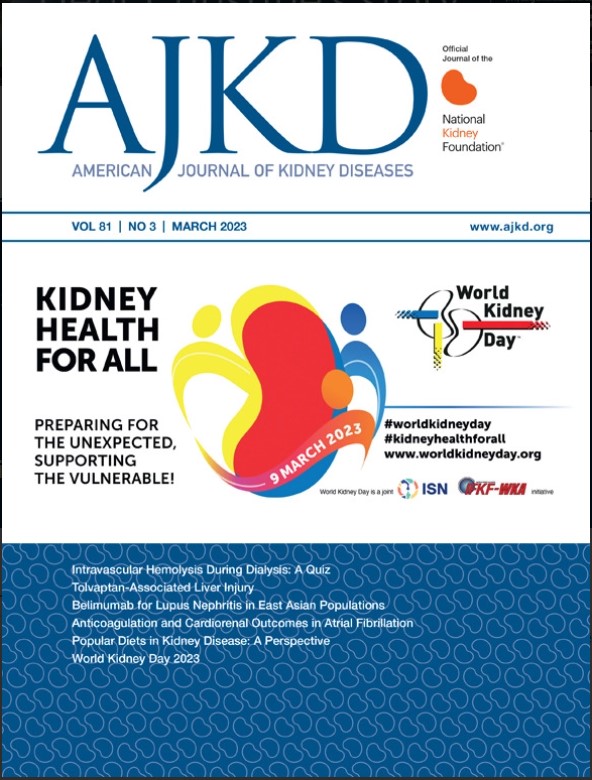嵌合抗原受体表达细胞治疗在免疫介导的肾脏疾病中的作用
IF 8.2
1区 医学
Q1 UROLOGY & NEPHROLOGY
引用次数: 0
摘要
免疫介导的肾脏疾病的特点是针对各种自身抗原的适应性免疫反应。B细胞作为产生自身抗体的浆细胞的祖细胞和抗原提呈细胞,在这些疾病的发病中起着至关重要的作用。尽管b细胞靶向治疗取得了重大进展,但复发在患者中很常见。单克隆抗体如利妥昔单抗的b细胞消耗不足,以及不能消耗浆细胞的证据表明,对免疫介导的肾脏疾病来说,更强大和完全的b细胞消耗可能是必要的。嵌合抗原受体(CAR)表达细胞疗法已成为一个有希望的选择。在这种方法中,像T细胞这样的免疫细胞通过基因工程来识别B细胞上的特定标记。通过利用T细胞浸润组织的天然能力及其高亲和力靶标结合,该方法能够比通常使用消耗B细胞的单克隆抗体更深入地清除B细胞。这篇综述探讨了使用b细胞耗尽car表达细胞疗法治疗免疫介导的肾脏疾病的潜力。本文章由计算机程序翻译,如有差异,请以英文原文为准。
Role of Chimeric Antigen Receptor–Expressing Cell Therapy in Immune-Mediated Kidney Diseases: A Review
Immune-mediated kidney diseases are characterized by an adaptive immune response directed against various self-antigens. B cells, as progenitors of autoantibody-producing plasma cells and as antigen-presenting cells, play a crucial role in the pathogenesis of these diseases. Despite significant advancements in B-cell-targeting therapies, relapses are common among patients. Evidence of insufficient B-cell depletion by monoclonal antibodies such as rituximab, and the inability to deplete plasma cells, suggests that a more robust and complete B-cell depletion may be necessary for immune-mediated kidney diseases. Chimeric antigen receptor (CAR)-expressing cell therapy has emerged as a promising option. In this approach, immune cells like T cells are genetically engineered to recognize specific markers on B cells. By leveraging T cells’ natural ability to infiltrate tissues and their high-affinity target binding, this method enables a deeper clearance of B cells than is usually observed with B-cell-depleting monoclonal antibodies. This review explores the potential of using B-cell-depleting CAR-expressing cell therapy in the treatment of immune-mediated kidney diseases.
求助全文
通过发布文献求助,成功后即可免费获取论文全文。
去求助
来源期刊

American Journal of Kidney Diseases
医学-泌尿学与肾脏学
CiteScore
20.40
自引率
2.30%
发文量
732
审稿时长
3-8 weeks
期刊介绍:
The American Journal of Kidney Diseases (AJKD), the National Kidney Foundation's official journal, is globally recognized for its leadership in clinical nephrology content. Monthly, AJKD publishes original investigations on kidney diseases, hypertension, dialysis therapies, and kidney transplantation. Rigorous peer-review, statistical scrutiny, and a structured format characterize the publication process. Each issue includes case reports unveiling new diseases and potential therapeutic strategies.
 求助内容:
求助内容: 应助结果提醒方式:
应助结果提醒方式:


